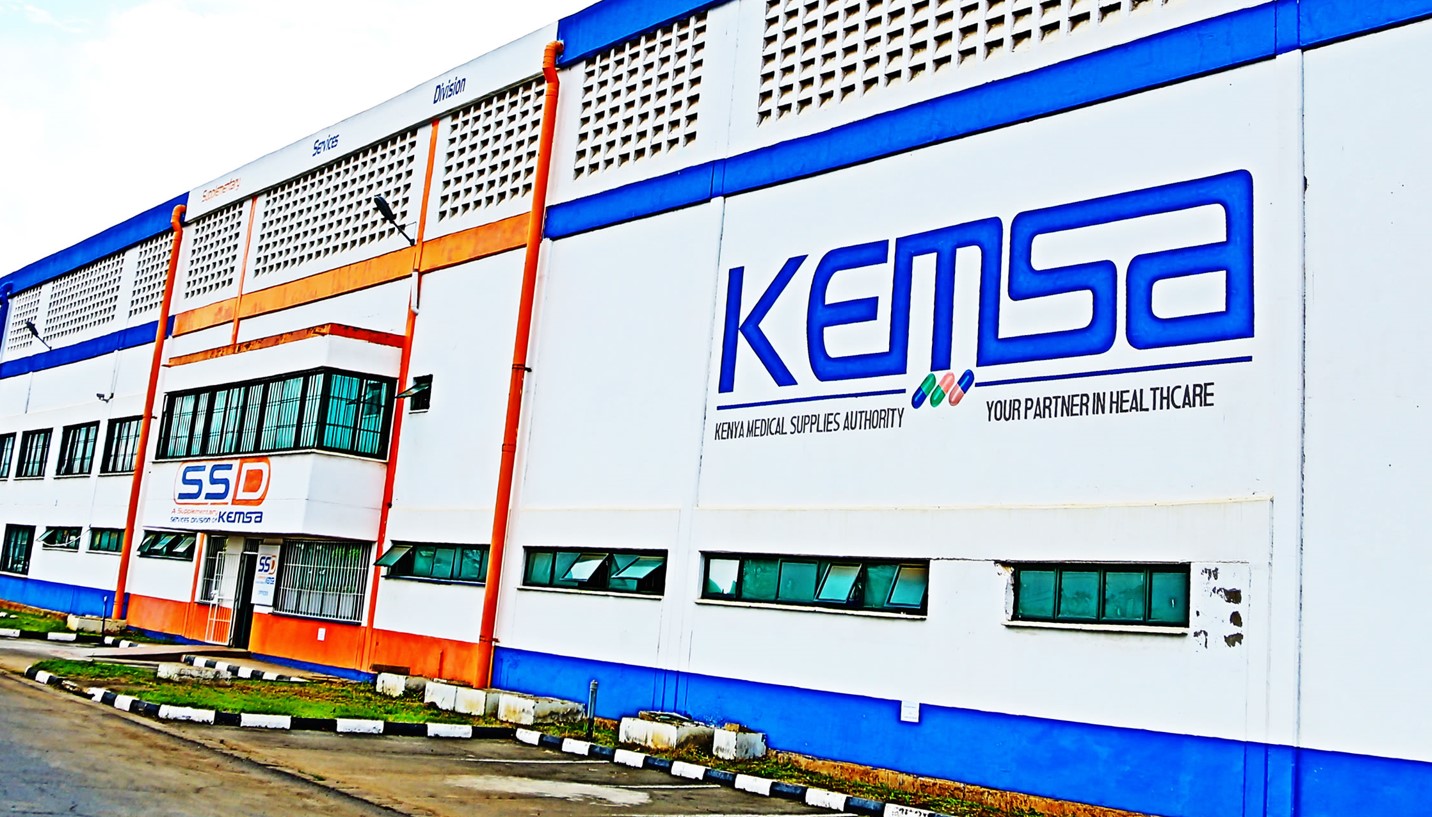KEMSA responds to audit report, cites Sh3bn debt as main cause of stockouts

The debt, which has accumulated due to delayed payments from counties, has strained KEMSA's revolving fund model.
The Kenya Medical Supplies Authority (KEMSA) has pointed to the Sh3 billion debt owed by county governments as the key issue affecting its ability to provide a steady supply of medical products to health facilities.
In a statement released on Thursday, the authority defended its operations and responded to a recent audit report that raised concerns over the quality of medical supplies and persistent stockouts in county hospitals.
More To Read
- Health CS Duale orders penalties over expired drugs, directs mandatory Kemsa procurement
- KEMSA announces temporary closure of distribution centres from July 1
- Kenya boosts medical interns' support with Sh4.3bn allocation in 2025/26 health budget
- Public health facilities to pay KEMSA directly under new SHA system
- Ruto tackles ‘hakuna dawa’ in hospitals with Sh10bn boost to KEMSA, county payments push
- KEMSA under scrutiny again over irregular medical supplies deal with Angelica Medical
The debt, which has accumulated due to delayed payments from counties, has strained KEMSA's revolving fund model.
This system relies on timely payments to replenish stocks and maintain a consistent flow of medical supplies.
However, the ongoing financial strain caused by unpaid debts has disrupted the supply chain, making it difficult for the authority to meet demand.
"Ordering patterns and poor budgeting by counties further distort our forecasting data, making it difficult to align supply with demand," KEMSA CEO Waqo Ejersa explained.
"The outstanding debt that counties owe KEMSA currently stands at Sh3 billion, and this financial strain severely hampers our ability to restock and distribute essential medicines."
KEMSA's defense
While the audit report, prepared by the County Public Investments and Special Funds Committee, raised concerns over the quality of medical supplies distributed by KEMSA and pointed out the issue of stockouts, the authority defended its commitment to high standards.
KEMSA stated that it follows rigorous quality control protocols to ensure that only safe and effective drugs are delivered to health facilities.
"KEMSA has an ISO17025:2017-certified Quality Control Laboratory and rigorous testing protocols that guarantee the safety and efficacy of all HPTs before distribution," the statement read.
Additionally, KEMSA collaborates with the Pharmacy and Poisons Board and works with prequalified laboratories, including MEDs, KEBs, and the National Quality Control Laboratory, to ensure that all medical supplies meet the necessary standards.
On the issue of stockouts, KEMSA attributed the problem to both financial constraints and poor forecasting.
The authority uses historical data from county health facilities to forecast demand and plan procurement.
However, the delayed payments and erratic ordering patterns from counties further complicate this process, leading to mismatches between supply and demand.
In its response, KEMSA reiterated that its Stock Holding Policy ensures that only medical commodities with at least 75 per cent of their shelf life remaining are accepted into its warehouses, a measure designed to guarantee the quality of the drugs distributed.
Additionally, the authority adheres to the Pharmacy and Poisons Board Recall Guidelines, which provide a structured process for managing substandard or expired drugs.
While acknowledging the challenges highlighted by the audit, KEMSA called on county governments to regularise their payment schedules and ensure adequate health budget allocations.
The authority believes that addressing these financial and systemic issues would go a long way in eliminating stockouts and improving the efficiency of the medical supply system.
"We believe that if these financial and systemic challenges are addressed, it will eliminate stockouts and enhance the delivery of services to our healthcare facilities," Waqo added.
Top Stories Today
Reader Comments
Trending












































